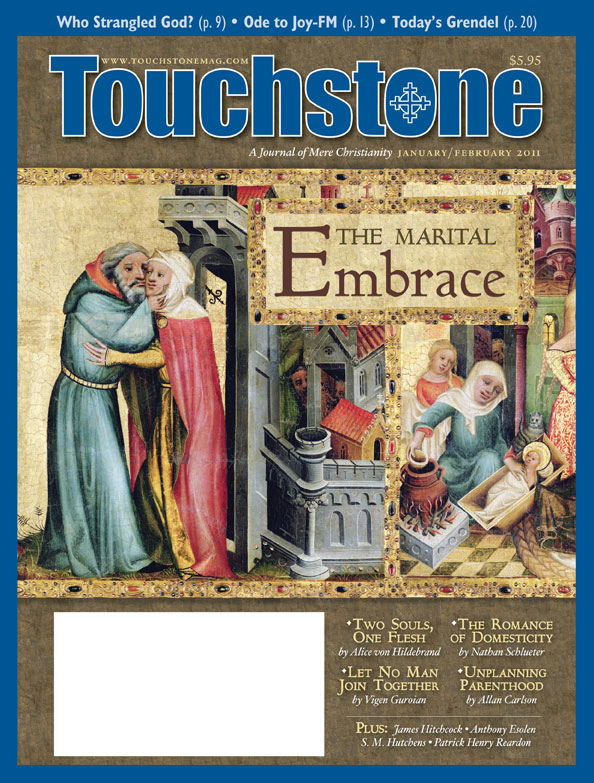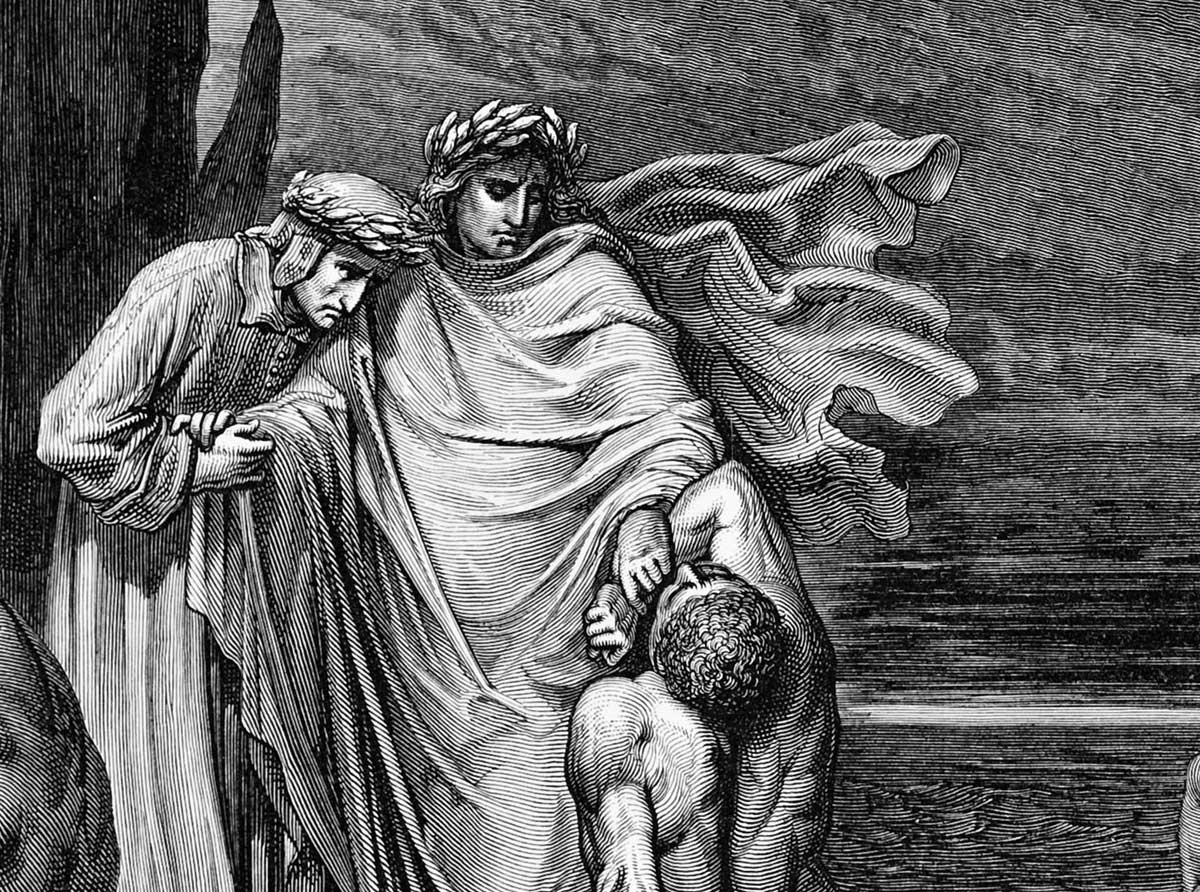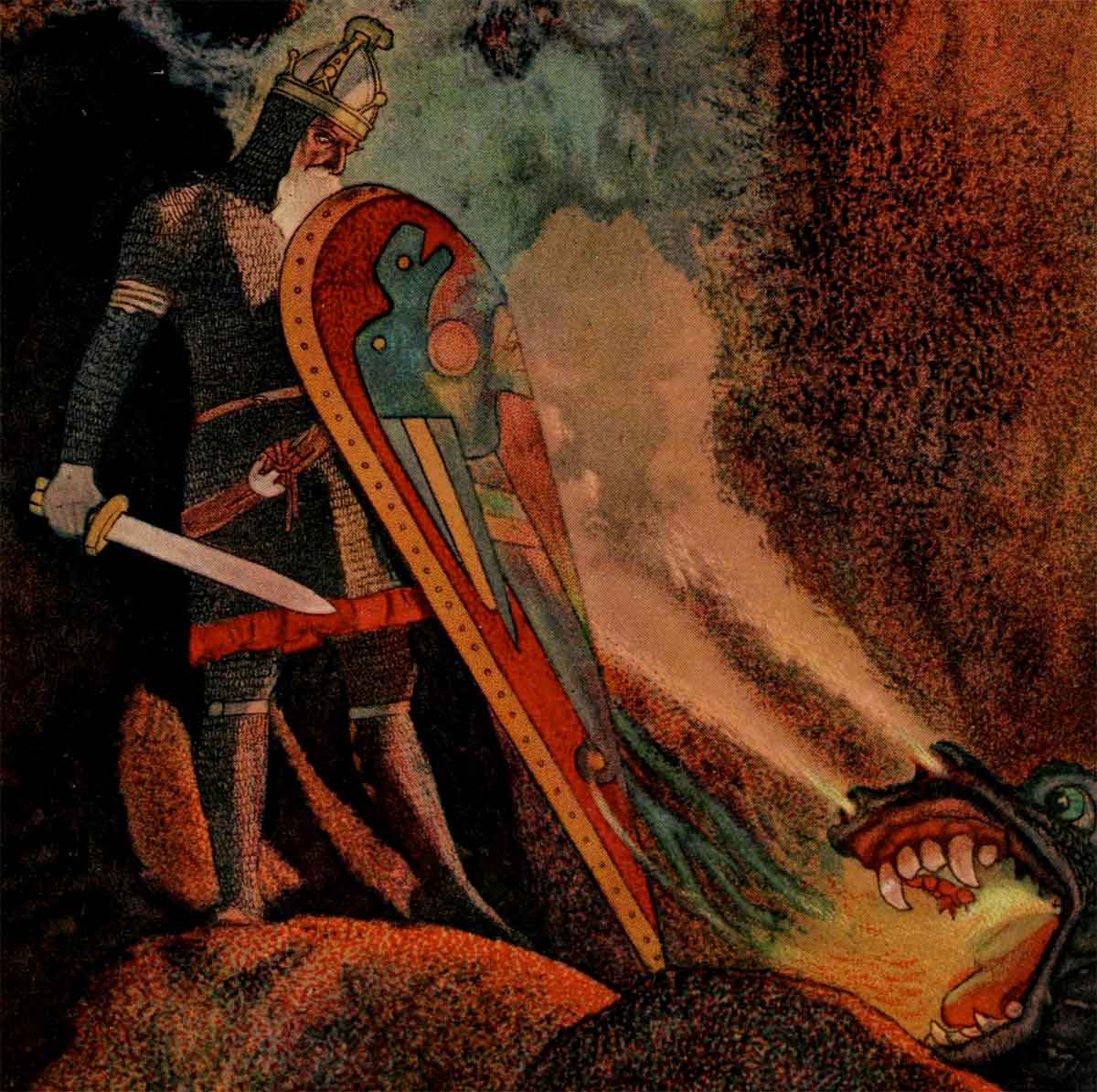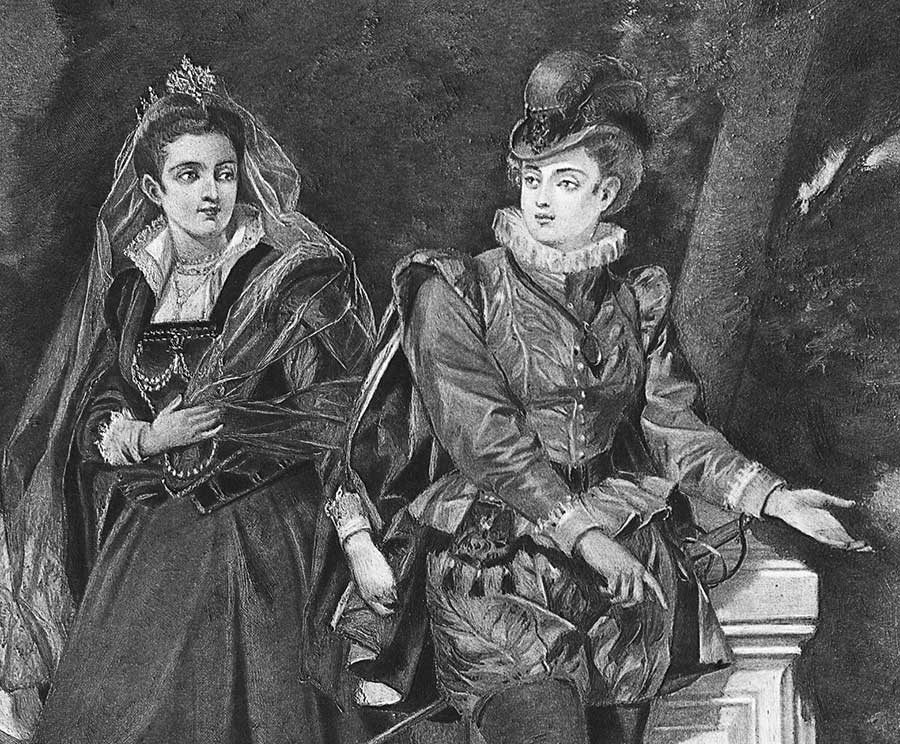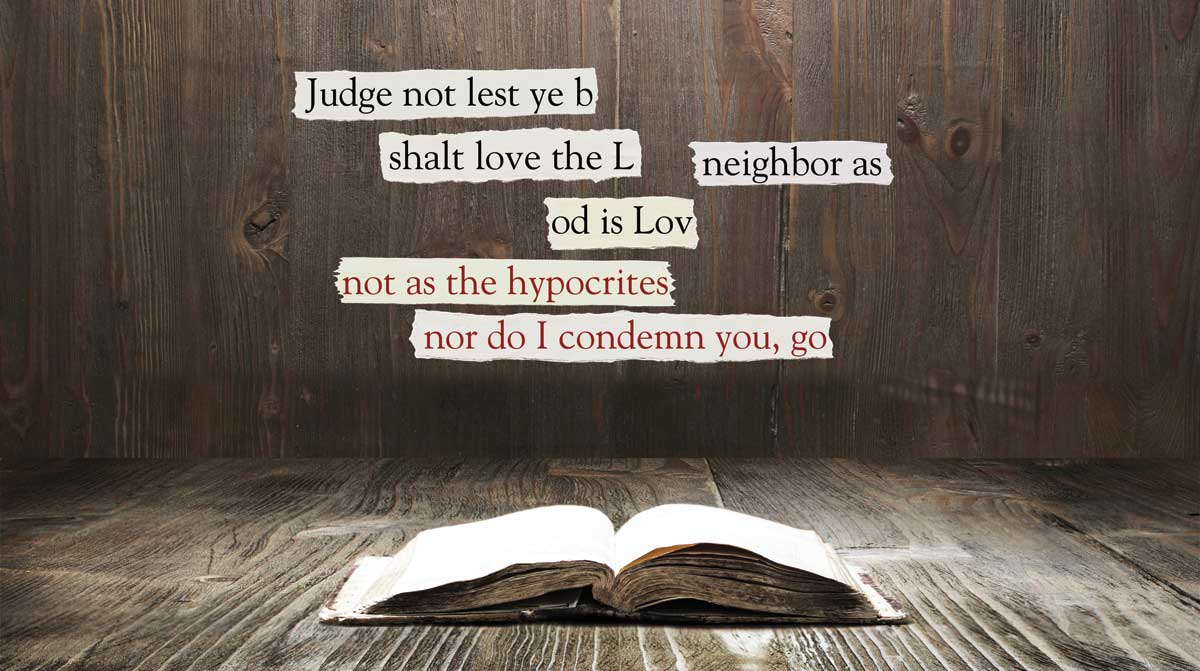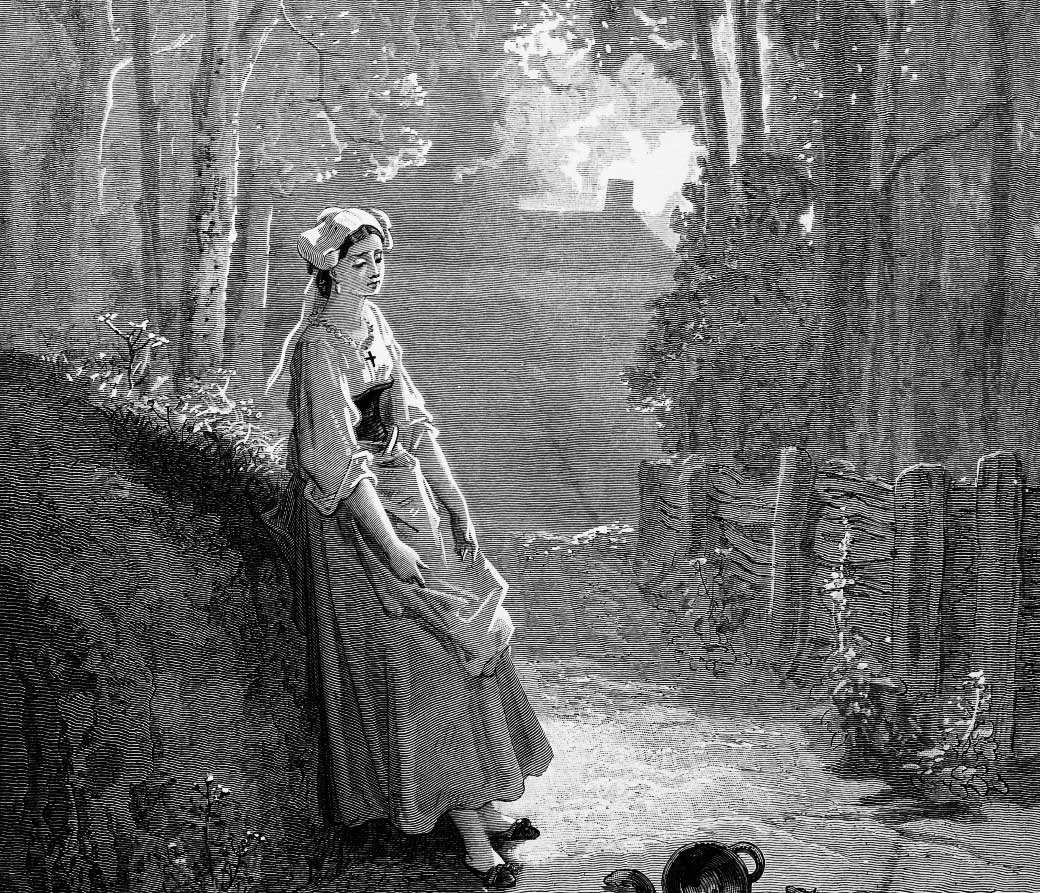Feature
Secular Grendel
Ruminations on the Monstrous Envy of the Soul-Devouring State
The monster, stalking the moors, sees in the distance the great hall Heorot rising into the night sky. Light from the hearth and the torch-lamps gleams through the windows and the open door. He hears the indistinct speech and the laughter of men, servants and warriors of the lord Hrothgar, as they rejoice in one another’s company. And the beer and the meat go round, and the court poet takes up his harp and begins to sing. It is a song of creation, of how the Measurer of all fashioned the sun and the moon and the stars, and this Middle Earth, and all that live upon it.
Grendel sees and hears all this, and hates it. His heart is wrung with envy. What he cannot share, he seeks to destroy. So when the singing and the laughter cease, he makes his single-purposed way into the hall, which he turns into the scene of another sort of feast, devouring human flesh and leaving the walls and the floor filthy with blood.
From that night on, says the poet of Beowulf, it was easy to find Danish warriors who would take their rest elsewhere than in Heorot, at some little distance from the hall. Hrothgar is left a king and no king, sitting upon his throne in vain, with no one near him to help, other than a few counselors who suggest a kind of backsliding sacrifice to the pagan gods, who are of no avail whatsoever.
A Monster of Light
Grendel in our times has mended his ways. He is still a half-human creature, to be sure, with enough perception of the good to suspect that he lacks it and to be put out when he sees that others possess it. But he no longer slouches in the darkness, waiting for his chance to strike. He is a monster of light. He does not need to burst open the hall door with a single thrust of his paw. He owns the hall. He still thirsts for blood, but he slakes that thirst in a more civilized and even what he will call a “humanitarian” way; he uses the scalpel and the forceps rather than the tooth.
He used to be an exile. But now that he has seized the Heorots of the world, he casts his enemies into exile instead. Not geographically; the new Grendel makes a great fuss over his enlightenment. He consigns them to the privacy of their little homes, where they can be kept separate from one another, and irrelevant. In the meantime, he provides his followers with enough pointless pleasure to prevent their awaking to the truth that, as another Old English poet put it, “Wyn eal gedreas”—“All joy is lost.”
Envy, says Thomas Aquinas, is the sorrow that one feels at the spiritual good of another. That definition fits Grendel well—both the monster who hates the fellowship of Hrothgar’s men, and the new despiser of faith, the theological virtue that alone can unite men and women, old and young, rich and poor, the wise and the foolish, the over-schooled and the under-schooled, in songs of hope and deeds of surprising love.
No Terrible Choices
And this warrants some thought. For we are used to considering envy as a vice—if we think of it as a vice at all—directed against someone else’s material good. This we do in two ways that are wonderfully contradictory, and that yet provide the impetus for much economic activity, and what is vaguely called “progress.”
First, we are committed to egalitarianism, a politics of universal envy. Unwilling to acknowledge that one person may be more intelligent than another, or more industrious, or more faithful to the moral law, we attribute differences in material welfare to some undefined injustice practiced by the undefined rich against the undefined poor. That spares our having to accuse anyone of a specific crime, while it allows us the sweet pleasure of feeling justified in our own eyes.
Anthony Esolen is Distinguished Professor of Humanities at Thales College and the author of over 30 books, including Real Music: A Guide to the Timeless Hymns of the Church (Tan, with a CD), Out of the Ashes: Rebuilding American Culture (Regnery), and The Hundredfold: Songs for the Lord (Ignatius). He has also translated Dante’s Divine Comedy (Random House) and, with his wife Debra, publishes the web magazine Word and Song (anthonyesolen.substack.com). He is a senior editor of Touchstone.
subscription options
Order
Print/Online Subscription

Get six issues (one year) of Touchstone PLUS full online access including pdf downloads for only $39.95. That's only $3.34 per month!
Order
Online Only
Subscription

Get a one-year full-access subscription to the Touchstone online archives for only $19.95. That's only $1.66 per month!
bulk subscriptions
Order Touchstone subscriptions in bulk and save $10 per sub! Each subscription includes 6 issues of Touchstone plus full online access to touchstonemag.com—including archives, videos, and pdf downloads of recent issues for only $29.95 each! Great for churches or study groups.
Transactions will be processed on a secure server.
more on literature from the online archives
more from the online archives
calling all readers
Please Donate
"There are magazines worth reading but few worth saving . . . Touchstone is just such a magazine."
—Alice von Hildebrand
"Here we do not concede one square millimeter of territory to falsehood, folly, contemporary sentimentality, or fashion. We speak the truth, and let God be our judge. . . . Touchstone is the one committedly Christian conservative journal."
—Anthony Esolen, Touchstone senior editor






